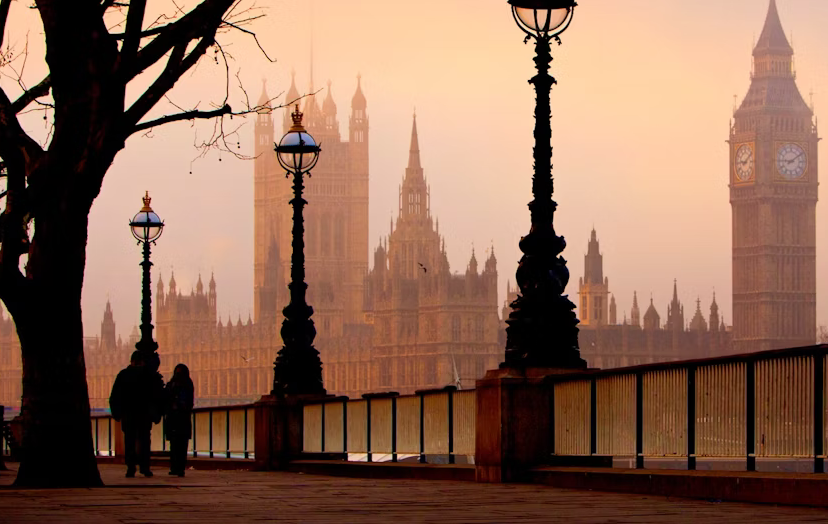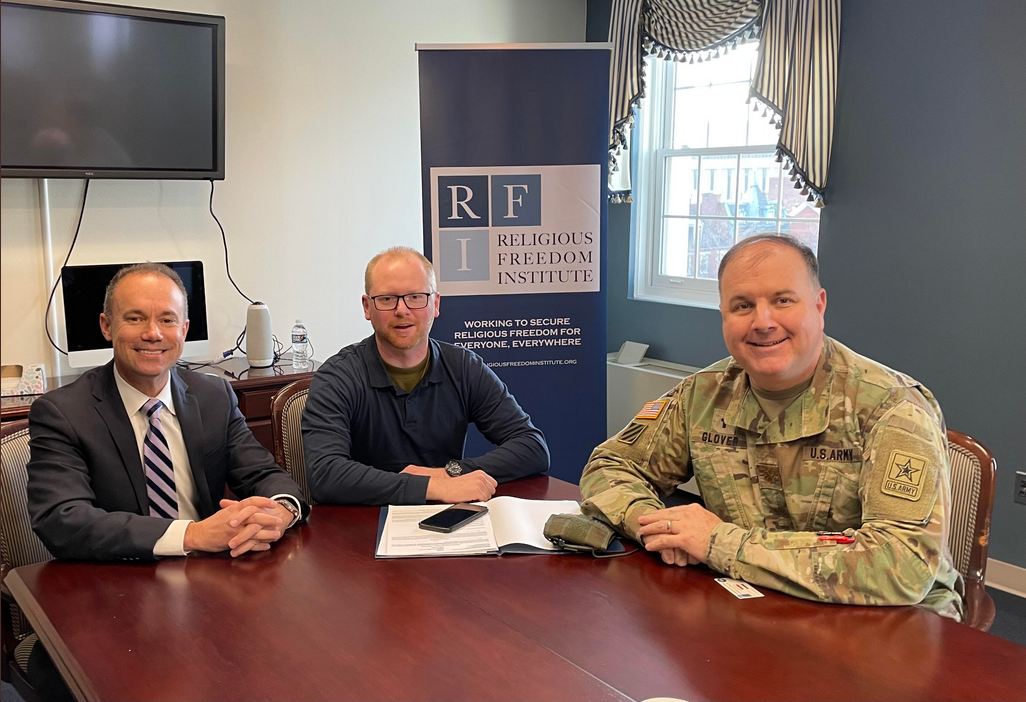RFI experts provided two days of briefings for 70 senior military chaplains from 30 countries as part of the 33rd annual International Military Chiefs of Chaplains Conference (IMCCC). RFI had planned to provide speakers for a live event in Washington, D.C., but the event transitioned to an online format in early January due to COVID-19 restrictions.
The IMCCC is an annual conference that convenes members of military chaplain leadership from countries around the world. These generals and colonels are responsible for the preparation and ministry of thousands of chaplains worldwide. The conference is a long-term initiative of U.S. European Command (USEUCOM). Since May 2020, RFI has been providing a monthly briefing on religion and world affairs to USEUCOM chaplains and staff officers.
RFI President Tom Farr provided the opening keynote address, “Religious Freedom: Weapon of Peace,” in which he argued that chaplains should think of religious freedom as part of their spiritual arsenal:
The core of my argument is that religious freedom can act as a “weapon of peace,” that is, as a deterrent, and even a preventive, of conflict. Religious freedom can serve as a vehicle for individual and social flourishing of the kind that can make societies more peaceful and just. In a similar way, religious freedom can help prevent violence and conflict, both when that violence and conflict has religious roots, and when its causes are anti-religious or secular. In short, because you as military chaplains have a distinct and singular role in the defense of justice, human dignity and peace, religious freedom should be part of your spiritual arsenal.
RFI’s other speakers included Executive Vice President Eric Patterson, Senior Fellow for Europe Todd Huizinga, and Senior Fellow for International Religious Freedom Policy Rehman Chishti. U.S. Ambassador-at-Large for International Religious Freedom Rashad Hussain also addressed the conference.
Patterson spoke about the religious factors in grand strategy, using the United States’ failure in Iran in the 1970s as a case study. According to a now declassified CIA report, the reason that the U.S. government did not predict the fall of the Shah and the rise of Ayatollah Khomeini’s Shia revolution was because no one from the U.S. government met with religious people or visited religious sites in the two years prior to the revolution. Despite the highly religious nature of Iranian society, not a single American diplomat or intelligence officer visited a mosque or communicated with religious leaders in the 24 months that led up to the chaotic revolution and the storming of the U.S. embassy in Tehran. Patterson went on to discuss the ways that religiously literate public officials can recognize the important religious dynamics of a society, focusing attention on how religious freedom – or the lack thereof – is a key sign of social stability or instability.
RFI Senior Fellow Rehman Chishti, in addition to being a sitting Member of Parliament in the United Kingdom (U.K.), has also previously served as British Special Envoy for Freedom of Religion or Belief. Chishti’s energetic presentation cited concrete steps that the U.K. and U.S. have taken to advance religious freedom beyond their own borders. Notable achievements include action taken to fulfill the recommendations of the Truro Report and the institutionalization of global cooperation on religious freedom through civil society groups, like RFI, and networks such as the International Religious Freedom Summit, the Ministerial to Advance Religious Freedom, and the International Religious Freedom Alliance.
RFI Senior Fellow for Europe, Todd Huizinga, is a former U.S. diplomat with global expertise on religious freedom. His remarks addressed the ethical dimensions of religion in statecraft and the vital ways that religious freedom upholds our highest ideals of human rights and equality. He further explained how religious freedom is such an important feature of secure societies that it is in the national interest of the United States and other countries to support and advance religious freedom worldwide.
RFI’s Executive Vice President Eric Patterson (left) and Chaplain Fellow Major Graham Glover (right) hosting Hungarian Chaplain Milan Mor Markovics (center) at RFI’s office on Capitol Hill.
RFI Chaplain Fellow, Major Graham Glover, participated in the full event, including in a live side meeting with the senior Catholic chaplain from Hungary. Reflecting on the event, Chaplain Glover said, “What was truly remarkable was the wide, energetic engagement of chaplains from around the globe. Questions and comments came from Germany, South Korea, and elsewhere. RFI’s network of friends and experts were on full display at the IMCCC, and I believe that RFI can continue to serve as a vital resource supporting the religious freedom of military members and sophisticated awareness of global religious trends.”
THE RFI BLOG

Religious Freedom Is Back on the UK’s Agenda

Be More Faithful, Become More Resilient: An Invitation to Religious Institutions

How Soccer Reveals Different Meanings Of ‘Secular’ In France And The US

RFI’s Ismail Royer Meets with Delegation from India

Protecting the Unborn, Mothers, and Medical Ethics: The Stakes of Arkansas’ Amendment
CORNERSTONE FORUM

Public Bioethics & the Failure of Expressive Individualism

Religious Liberty in American Higher Education

Scotland’s Kate Forbes and the March of Secularism

70 Years of Religious Freedom in Sweden: Prospects and Challenges


